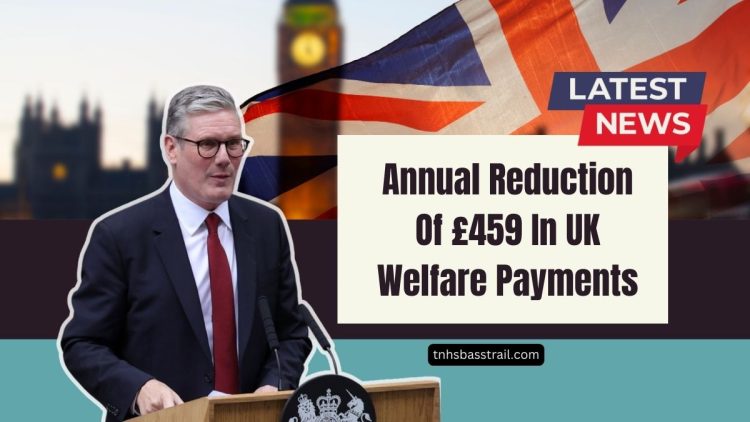In 2025, the UK government has implemented significant welfare reforms resulting in an average annual reduction of £459 per household receiving benefits or pensions.
These changes aim to streamline welfare spending but have raised concerns about their impact on vulnerable populations.
Key Changes in 2025 Welfare Reforms
Universal Credit Adjustments
The health-related element of Universal Credit (UC) for new claimants will be reduced to £50 per week starting in 2026/2027 and frozen until 2029/2030. Existing recipients will see this element frozen at £97 per week during the same period.
Personal Independence Payment (PIP) Revisions
Eligibility criteria for the daily living component of PIP are tightening. From November 2026, claimants must score at least 4 points on one daily living task to qualify. This change could affect up to 1.2 million people, potentially leading to annual losses between £4,200 and £6,300.
State Pension Increase
On a positive note, the full new State Pension has increased by 4.1% to £230.25 per week in April 2025, up from £221.20. This equates to an annual increase of approximately £470.
Impact Overview
The following table summarizes the key aspects of the 2025 welfare reforms:
| Aspect | Details |
|---|---|
| Average Annual Reduction | £459 per household |
| Total Affected Households | Over 3.2 million |
| PIP Eligibility Changes | Up to 1.2 million may lose £4,200–£6,300 annually |
| UC Health Element Reduction | New claimants: £50/week; Existing claimants: frozen at £97/week |
| State Pension Increase | Full new rate: £230.25/week (4.1% rise) |
| Projected Poverty Increase | Additional 250,000 people, including 50,000 children, may fall into poverty by 2029 |
Who Is Most Affected?
- Disabled Individuals: Those relying on PIP and UC health elements face significant reductions.
- Low-Income Families: Households with children, especially single-parent families, may experience increased financial strain.
- Pensioners: While the State Pension has increased, other benefits like Winter Fuel Payments may offset gains for some.
Steps to Mitigate the Impact
- Review Your Entitlements: Utilize online calculators to assess eligibility for benefits like Council Tax Support or Carer’s Allowance.
- Seek Professional Advice: Organizations such as Citizens Advice and Turn2Us can provide guidance on navigating benefit changes.
- Consider Employment Opportunities: Explore government-funded training programs or job support services to enhance income stability.
The 2025 welfare reforms introduce substantial changes to UK benefits and pensions, aiming to reduce public spending. While some measures, like the State Pension increase, offer relief, others may significantly impact vulnerable groups. Staying informed and proactively seeking support can help mitigate these challenges.
FAQs
How will the PIP eligibility changes affect me?
If you currently receive the daily living component of PIP, the new criteria from November 2026 may require reassessment. Failure to meet the updated threshold could result in the loss of this benefit.
Are all Universal Credit recipients affected by the health element reduction?
The £50/week rate applies to new claimants from 2026/2027. Existing recipients will have their health element frozen at £97/week until 2029/2030.
Does the State Pension increase offset other benefit reductions?
While the State Pension has increased by 4.1%, other benefit cuts may negate this gain, depending on individual circumstances.

